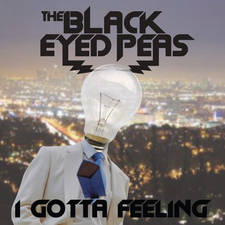Poole Man In Cancer Campaign
A Man from Poole is taking part in a campaign to increase awareness of Neuroendocrine tumours (NETs) - which is what Apple Boss, Steve Jobs, died from.
Research shows 61% of patients are misdiagnosed, while health experts worry that thousands could be living with this form of cancer without realising it.
Neuroendocrine tumours (NETs) is the umbrella term for a group of unusual, often slow-growing cancers, which develop from cells in the diffuse endocrine system. They are found most commonly in the lung or gastrointestinal system, but they can also originate in other parts of the body such as the pancreas, ovary, and testes, among other sites.
There are approximately 7,000 NETs patients in the UK, however one of the manor challenges is that NET cancers are difficult to diagnose. In many people they produce only minor symptoms initially, so doctors believe that there are probably thousands of people living their lives with NETs, but unaware.
After the onset of symptoms, which are often nonspecific and vague, a diagnosis can take an average of 3 - 7 years, while a NET Patient Foundation survey found that 61% of NETs patients were misdiagnosed initially and that 47% returned to their GP a number of times before referral to a specialist.
If NET cancers are detected early in their development, they can often be cured with surgery. At present, however, most NET cancers are diagnosed at a later stage, when they have already spread to other parts of the body. In these cases, they can rarely be cured, although the symptoms can often be managed successfully for a number of years.
Probably the most high profile case of NETs was that of Apple founder Steve Jobs, who was diagnosed with Pancreatic Neuroendocrine tumours in 2003 and died from the condition last year. However, general awareness of the condition is low.
Rob Sowerby from Poole was told he had Irritable Bowel Syndrome for years.
He's now getting treatment at Southampton General, but says GPs don't know enough about it:
"It's such a rare thing that virtually no one knows about it. I had the first signs of problems since 2004 and it wasn't until 2007 that I actually went to see my GP. But I'd seen four doctors at the practice and they just said it's IBS and I've just got to deal with it."
He added: "I really would urge anyone to not just accept what you're told at first -push for a second opinion. I hope the campaign will also make doctors think twice about diagnosing IBS and at least consider it could be something more serious."
Symptoms of the various forms of NET cancers include: Flushing, Diarrhea, Abdominal pain and wheezing, cough, bloody septum, Epigastric pain, Chronic ulcer disease, Intermittent low blood sugar, Rash, Diabetes.
The NET Patient Foundation has been active in the UK for 6 years. It aims to provide support to NET patients and their families and to give them information on everything they may need to know about these conditions. This can include information on where and how to find specialised care or details about new trials and other research


